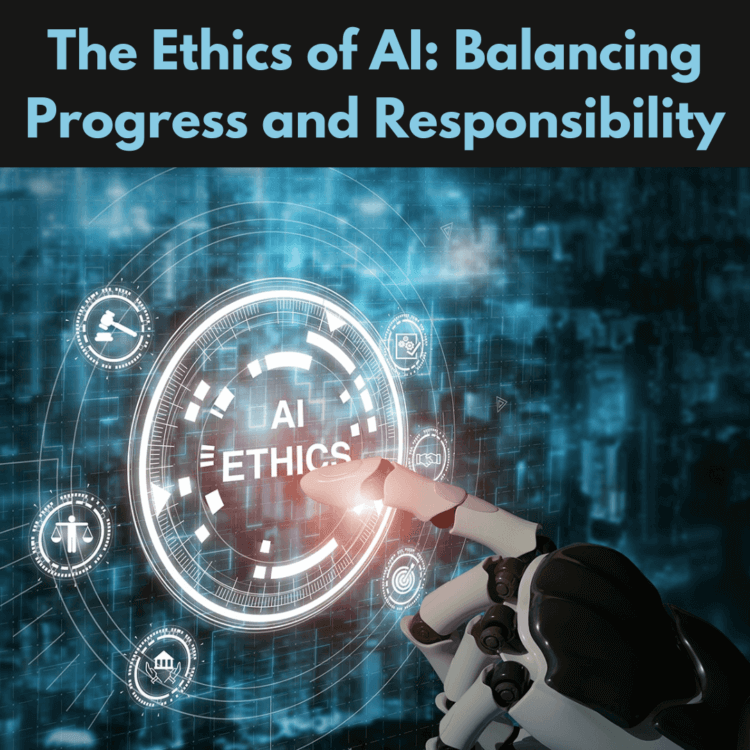The ethics of AI (Artificial Intelligence) is a critical and evolving field that revolves around the moral and societal implications of AI technology. It involves the complex task of balancing progress and innovation with ethical responsibility. Here are some key considerations and challenges in the ethics of AI:
1. Autonomy and Decision-Making
AI systems are increasingly being used in decision-making processes in areas like criminal justice, healthcare, and finance. Ensuring that AI systems make decisions that are fair, transparent, and unbiased is an ethical challenge. Bias in AI, for example, can perpetuate discrimination and social inequalities.
2. Privacy
AI systems can process vast amounts of personal data, raising concerns about data privacy. Maintaining the privacy of individuals and ensuring their consent is an ethical imperative. Issues such as surveillance, data breaches, and the misuse of personal information are of concern.
3. Transparency
The “black box” problem in AI, where it can be challenging to understand how AI systems arrive at their decisions, poses ethical dilemmas. There’s a need for transparency in AI systems so that people can understand and trust the technology.
4. Accountability
Determining responsibility when things go wrong with AI is complicated. Is it the developer, the user, or the AI system itself that is accountable for undesirable outcomes? Establishing clear lines of responsibility is an ethical challenge.
5. Job Displacement
Automation driven by AI can lead to job displacement. Ensuring that the benefits of AI are distributed equitably and addressing the impact on employment is an ethical consideration.
6. Safety
AI in autonomous systems, such as self-driving cars or medical devices, must operate safely. Ensuring that AI technologies do not harm people and have mechanisms to prevent accidents is an ethical obligation.
7. Bias and Fairness
AI systems can perpetuate or even amplify biases present in training data. Detecting and mitigating bias in AI algorithms is an ethical imperative to ensure fairness and equity.
8. Accountability in AI Research
AI researchers must consider the ethical implications of their work, especially when it has the potential for misuse. Deciding what to research and how to publish findings responsibly is an ongoing challenge.
9. Global Ethics
AI has global implications, and differing cultural and societal norms can influence ethical considerations. Developing a set of global AI ethics standards is a challenge.
10. Regulation and Governance
Striking the right balance between regulating AI to protect ethical principles while not stifling innovation is a complex task. Governments and international organizations are working on frameworks and standards.
11. Long-Term Implications
AI has the potential to bring about profound societal changes. Consideration of the long-term impacts, such as superintelligent AI, is an ethical responsibility.
Balancing progress and responsibility in AI requires collaboration among technologists, policymakers, ethicists, and the broader society. It involves designing AI systems with ethical considerations in mind, ensuring transparency, accountability, and fairness, and regularly revisiting and adapting ethical guidelines as AI technology continues to evolve. Ultimately, the ethical use of AI is critical for ensuring that AI advancements benefit humanity as a whole.










No Comments
Leave Comment